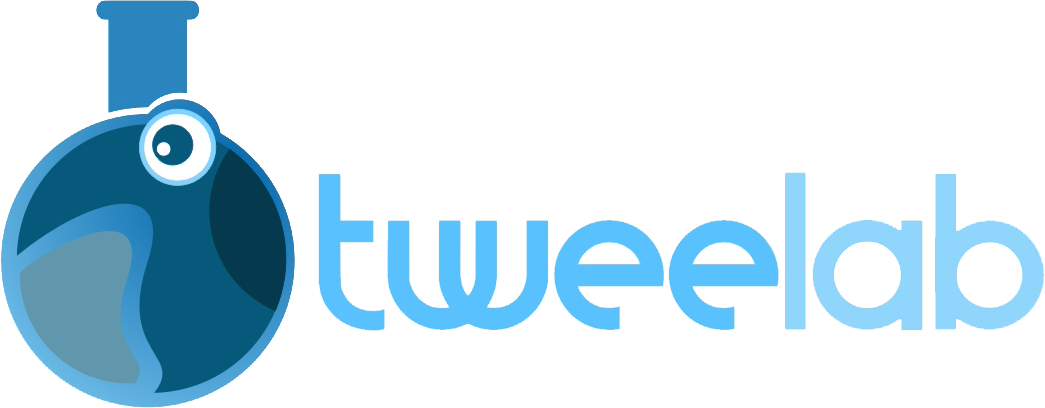As a blogger, monetizing your content is crucial to sustaining your website and brand. One of the most common ways bloggers make money is through sponsored posts and advertisements.
However, understanding the difference between these two types of promotions can be confusing for both new and experienced bloggers. Sponsored posts are articles or videos that promote a specific product or service in exchange for payment from the sponsor.
Advertisements, on the other hand, are visual displays such as banners or pop-ups that promote products or services but do not necessarily require any endorsement from the blogger. In this article, we will delve deeper into the differences between sponsored posts vs. advertisements and how they impact blog monetization strategies.
Defining Sponsored Posts

Sponsored posts are a popular way for bloggers to monetize their content. Essentially, these types of posts involve partnering with a brand or company and creating content that promotes their product or service. The key difference between sponsored posts and traditional advertising is that the former tends to be more organic in nature.
When it comes to finding sponsored post opportunities, there are several strategies you can employ.
First, consider reaching out directly to brands or companies that align with your blog’s niche and audience.
You can also sign up for influencer networks or use platforms like Fohr or AspireIQ to connect with potential sponsors.
In terms of sponsored post rates, this will vary depending on factors such as your blog’s traffic, social media following, and engagement metrics.
It’s important to do some research into industry standards and comparable blogs within your niche before setting your own rates.
Remember that transparency is key when working with sponsors – make sure you disclose any compensation received in accordance with FTC guidelines.
The Benefits And Drawbacks Of Sponsored Posts

Sponsored posts are a great way to reach a wider audience and create more engagement with your blog, but it’s important to consider the quality of the content you’re producing.
Quality content that is well-researched and adds value to your readers is key for successful blog monetization.
Cost-effectiveness is also an important factor to consider when deciding whether or not to use sponsored posts; they can be an expensive option, so weighing up the pros and cons is essential.
Ultimately, it’s worth it if it’s going to lead to increased blog reach and engagement.
Reach
When it comes to sponsored posts, one of the main benefits is the increased reach they offer. Sponsored posts are designed to be seen by a wider audience than regular blog content, since they are often shared on social media and other platforms as part of a larger marketing campaign. As a result, bloggers who write sponsored posts can expect to see higher levels of engagement and more traffic to their site.
Analyzing engagement is an important metric for measuring the success of sponsored posts. This involves looking at how many people interacted with the post (such as likes, shares, comments), as well as how long visitors stayed on the page and whether they clicked through to other parts of your site. By tracking these metrics over time, you can get a better sense of what types of content resonates best with your audience and adjust your strategy accordingly.
Of course, there are also some drawbacks to consider when it comes to sponsored posts. For example, if you’re not careful about choosing partners that align closely with your brand values or writing high-quality content that adds value for readers rather than just being overly promotional, you could end up losing credibility among your followers.
Additionally, while sponsored posts may increase your overall reach in terms of raw numbers, it’s important to measure ROI carefully so that you’re not sacrificing quality for quantity. Ultimately, striking the right balance between monetization and authenticity is key to building trust with your audience over time.
Quality
Now that we’ve talked about the importance of analyzing engagement when it comes to sponsored posts, let’s shift our focus to another crucial factor: quality.
While monetizing your blog through sponsored content can be a great way to maximize revenue, it’s important not to sacrifice the integrity of your brand in the process.
When considering potential partnerships for sponsored posts, ethical considerations should always come first. It’s essential to choose partners whose values align with yours and who offer products or services you genuinely believe in.
This will help ensure that any promotional content you create feels authentic and adds value for your readers rather than coming across as spammy or insincere.
In addition to partnering with ethical brands, it’s also important to prioritize high-quality content when creating sponsored posts. This means taking the time to craft well-written articles or videos that are informative, engaging, and visually appealing.
By focusing on delivering real value for your audience, you’ll build trust over time and increase the likelihood that they’ll continue following your blog even after clicking on a sponsored post.
Cost-Effectiveness
Now that we’ve discussed the importance of maintaining brand integrity and creating high-quality content in sponsored posts, it’s time to shift our focus to another crucial factor: cost-effectiveness.
As a blogger looking to monetize your platform through sponsored content, it’s essential to consider the return on investment (ROI) for each partnership.
Before agreeing to work with a brand on a sponsored post, take the time to conduct an ROI analysis. Determine how much you’ll be paid for the post compared to the amount of time and effort required to create it.
It’s also important to consider whether the partnership aligns with your long-term revenue goals and overall business strategy.
While cost-effectiveness is certainly an important consideration when working with brands on sponsored posts, it shouldn’t come at the expense of quality or ethics.
Remember that your readers trust you as a source of valuable information and recommendations, so always prioritize their needs over short-term financial gain. By choosing partnerships carefully and delivering high-quality content consistently, you can build a thriving blog that generates sustainable revenue while staying true to your values.
What Are Advertisements?

As we have seen in the previous section, sponsored posts can be a great way for bloggers to monetize their content. However, they may not always be the best fit for every blog or blogger.
Another option that many bloggers turn to is advertising. Advertisements come in all shapes and sizes, from display ads on websites to social media ads targeted at specific demographics. There are also different types of advertisements, such as pay-per-click (PPC) ads where advertisers only pay when someone clicks on their ad or cost-per-impression (CPM) ads where advertisers pay based on how many times their ad is displayed.
Different advertising platforms offer various benefits and drawbacks depending on your blogging niche and audience. For example, Google AdSense is a popular choice for bloggers because it’s easy to set up and provides relevant ads based on keywords found within your content. On the other hand, affiliate marketing programs like Amazon Associates allow you to earn commissions by promoting products you believe in through unique links provided by the company.
Ultimately, whether you choose sponsored posts or advertisements will depend on what works best for your blog and its goals. It’s important to consider all options available carefully before making any decisions about monetizing your content. By doing so, you’ll increase your chances of success while staying true to yourself and your readership needs.
The Pros And Cons Of Advertisements

Are advertisements worth it for blog monetization? Some may argue that ads are a necessary evil, while others see them as an effective way to make money. Let’s take a closer look at the pros and cons of advertisements on your blog.
One major advantage is the potential revenue generated from ad clicks or impressions. However, with the rise of ad blockers, this source of income can be greatly reduced if not completely eliminated.
Additionally, some readers may find ads intrusive and disrupt their experience on your site. Another aspect to consider is targeting your audience through ads. By displaying relevant products or services, you increase the likelihood of click-throughs and conversions.
On the other hand, if the ads displayed are irrelevant or unappealing to your audience, they may become annoyed and leave your site altogether. Overall, whether or not to include advertisements on your blog ultimately comes down to weighing the pros and cons in relation to your goals and audience.
Consider alternative methods such as sponsored posts or affiliate marketing before committing solely to traditional advertising methods. Remember that building trust with your readers should always come first in any monetization strategy.
Balancing Sponsored Posts And Advertisements For Monetization

After carefully weighing the pros and cons of advertisements, it’s important for bloggers to find a balance between sponsored posts and ads in order to maximize their monetization potential. While both can be effective ways to earn money from your blog, they each come with their own set of challenges.
One of the main considerations when balancing sponsored posts and advertisements is pricing strategies. With sponsored content, you have more control over how much you charge for each post. However, this also means that you need to work harder to justify those prices by creating high-quality content that resonates with your target audience. On the other hand, ads typically have lower rates but require less effort on your part.
Speaking of audiences, targeting the right people is key when it comes to maximizing revenue from both sponsored posts and ads. For example, if you run a food blog, partnering with kitchen appliance brands or meal delivery services might make sense as sponsored partners. Meanwhile, displaying ads related to cooking tools or recipe books could help boost ad revenue while still providing value to your readers.
By finding the right balance between sponsored posts and advertisements – taking into account pricing strategies and targeted audiences – bloggers can create a sustainable income stream while maintaining credibility with their readership.
Remember: it’s all about providing valuable content that benefits everyone involved – yourself, your sponsors/advertisers, and most importantly, your audience.
Legal Considerations For Sponsored Posts And Advertisements

When monetizing a blog, it’s important to be aware of the legal considerations surrounding sponsored posts and advertisements. Disclosure requirements vary depending on the type of content, so it’s important to understand the difference between sponsored posts and ads.
The FTC has guidelines for disclosure to ensure that readers are aware of any sponsored content. Additionally, copyright issues may also arise if content from a third-party is used. To remain compliant, make sure to get permission or use Creative Commons licensed images.
Sponsored posts and advertisements can be a great way to monetize your blog, but it’s important to understand the legal implications.
Disclosure Requirements
As a blogger or content creator, it’s important to understand the disclosure guidelines when it comes to sponsored posts and advertisements. These requirements are in place to ensure that readers are aware of any financial relationships between you and the brands or products you promote on your platform.
In addition to being a legal requirement, disclosing sponsored posts and ads is also an ethical consideration. Your audience trusts you for honest and unbiased information, so it’s crucial to maintain their trust by clearly stating when content is paid for. This transparency not only protects your credibility but also helps build long-term relationships with your followers.
To comply with disclosure guidelines, make sure that any sponsored post or advertisement includes clear language indicating that compensation was received in exchange for the promotion. Whether it’s through a hashtag (#ad) or written disclaimer at the beginning of the post, always err on the side of caution when it comes to transparency.
By doing so, you’ll be able to continue monetizing your blog while maintaining authenticity and trust among your readership.
FTC Guidelines
Now that we’ve covered the importance of disclosure guidelines for sponsored posts and advertisements, let’s dive deeper into what these guidelines entail.
In particular, it’s crucial to understand the Federal Trade Commission (FTC) regulations surrounding endorsements and testimonials.
The FTC requires that any sponsored content or advertisement includes a clear disclosure indicating the financial relationship between you and the brand or product being promoted. This means using language such as ‘sponsored,’ ‘paid partnership,’ or ‘#ad’ in a prominent location within your post. Additionally, if you received free products or services in exchange for promotion, this must also be disclosed.
It’s important to note that these guidelines apply not only to blog posts but also social media platforms such as Instagram and YouTube.
As a blogger or content creator, it’s essential to stay up-to-date on changes in FTC rules and ensure that all sponsored content is properly disclosed.
Failure to do so can result in legal action and damage to your credibility among followers.
Copyright Issues
Now that we’ve covered the importance of disclosure guidelines for sponsored posts and advertisements, let’s move on to another critical legal consideration: copyright issues.
As a content creator, you must be aware of plagiarism concerns and fair use guidelines when creating sponsored posts or ads.
Plagiarism is taking someone else’s work without permission and passing it off as your own. It includes copying text, images, videos, or any other creative works without proper attribution. To avoid this issue, always make sure to credit the original source when using their content in your post or ad. Additionally, consider obtaining written permission from the owner before using their work.
On the other hand, Fair Use Guidelines allow for limited use of copyrighted material without seeking permission from its owner. This means you can use some portions of copyrighted work under certain circumstances such as criticism, commentary, news reporting, teaching or scholarship purposes. However, determining whether your use falls under fair use requires careful consideration of several factors such as nature and purpose of usage and amount used among others.
In conclusion, while creating sponsored content or ads it is crucial to keep copyright infringement at bay by utilizing proper crediting methods and adhering to Fair Use Guidelines where applicable.
Awareness about these issues not only ensures compliance with legal obligations but also helps maintain credibility amongst followers by demonstrating ethical practices in monetizing blog content.
Maximizing Revenue Through Effective Blog Monetization Strategies

To maximize revenue through effective blog monetization strategies, bloggers must consider different options beyond just sponsored posts and advertisements.
One of the most popular methods to earn money is through affiliate marketing. This involves promoting a product or service on your website and earning a commission for each purchase made through your unique referral link.
Another strategy that has gained traction in recent years is using sponsored content platforms. These platforms connect bloggers with brands looking to advertise their products or services. Bloggers can choose which opportunities they want to participate in, negotiate rates, and create content that fits both their brand’s voice and the sponsor’s needs.
It’s important to remember that successful blog monetization requires finding a balance between providing valuable content for readers while also generating income. Too many ads or sponsored posts can turn off followers and decrease engagement, ultimately hurting the blogger’s bottom line.
By diversifying monetization strategies and prioritizing audience satisfaction, bloggers can increase revenue without sacrificing authenticity or credibility.
Key Takeaways
- Monetizing a blog is crucial for sustaining the website and brand.
- Sponsored posts are articles or videos that promote a specific product or service in exchange for payment from the sponsor.
- Advertisements are visual displays that promote products or services without requiring endorsement from the blogger.
- Sponsored posts tend to be more organic and can reach a wider audience through social media and other platforms.
- Engaging and well-researched content is key for successful blog monetization.
- Sponsored posts can increase blog reach and engagement, but it’s important to choose partners that align with your brand values and create high-quality content.
- Advertisements can generate revenue through clicks or impressions, but ad blockers can reduce their effectiveness.
- Balancing sponsored posts and advertisements is important to maximize monetization potential.
- Legal considerations include disclosure requirements for sponsored posts and advertisements, FTC guidelines for endorsements, and copyright issues.
Frequently Asked Questions
How Do Sponsored Posts And Advertisements Differ In Terms Of Their Target Audience?
Influencer marketing and native advertising are two key methods of promoting products or services through sponsored content.
While influencer marketing focuses on collaborating with social media influencers to reach a specific target audience, native advertising involves creating ads that blend seamlessly into the platform where they appear.
Both techniques have their benefits for blog monetization–influencer marketing can help boost brand awareness while native advertising allows for more precise targeting–but it’s important to understand which approach is best suited for your particular blog and its readership.
Ultimately, choosing between these strategies will depend on your goals as a blogger and the preferences of your audience.
Can Sponsored Posts And Advertisements Be Used Together In A Single Blog Post?
As a content strategist/writer for blog monetization, finding the right balance between advertising and sponsorship is crucial to combining monetization methods.
While both sponsored posts and advertisements have their benefits, using them together in a single blog post can be a great way to increase revenue.
However, it’s important to ensure that they don’t compete with each other or overwhelm your audience.
By strategically placing ads and sponsored content within your blog post, you can effectively monetize while still providing value to your readers.
Is It Necessary To Disclose Sponsored Posts And Advertisements To Readers?
As a content strategist and writer for blog monetization, it’s important to understand the legal obligations and transparency standards when it comes to sponsored posts and advertisements.
It’s crucial to disclose any paid promotions or partnerships in order to maintain trust with readers and avoid potential legal issues.
Transparency is key in building a loyal audience that values authenticity.
Therefore, it is necessary to clearly label all sponsored content as such, regardless of whether it’s a post or advertisement.
By doing so, bloggers can continue to monetize their content while still upholding ethical practices.
Are There Any Ethical Considerations When It Comes To Monetizing A Blog Through Sponsored Posts And Advertisements?
Disclosure requirements and legal implications are critical considerations when monetizing a blog through sponsored posts and advertisements.
As a content strategist/writer, it’s essential to ensure readers understand any financial relationships with brands or products promoted on your blog. Failure to disclose sponsored content or ads can result in negative consequences, including fines from regulatory bodies and loss of trust from your audience.
Therefore, bloggers must adhere to ethical standards by providing clear disclosures for all paid promotions on their website. By doing so, they maintain transparency with their followers, build credibility as an influencer, and avoid potential legal issues.
How Can Bloggers Ensure That Their Sponsored Posts And Advertisements Align With Their Personal Brand And Values?
As a content strategist/writer for blog monetization, it’s important to consider blogger authenticity and brand partnerships when creating sponsored posts and advertisements.
Bloggers should ensure that the products or services they’re promoting align with their personal brand and values. This not only helps maintain credibility but also builds trust with their audience.
It’s essential to establish clear guidelines for partnering with brands in order to avoid compromising authenticity. By being selective about which companies they work with, bloggers can create meaningful relationships while maintaining their integrity as influencers.
Final Thoughts
In conclusion, understanding the difference between sponsored posts and advertisements is essential for effective blog monetization. Both have different target audiences and can be used together in a single post with proper disclosure to readers. However, it’s important to consider the ethical implications of promoting products or services on your platform.
Did you know that according to a study by IZEA, 84% of consumers trust online reviews as much as personal recommendations? This highlights the importance of authenticity when creating sponsored content or integrating ads into your blog.
As bloggers, we must ensure that our sponsored posts and advertisements align with our personal brand and values to maintain credibility with our audience.
As content strategists/writers for blog monetization, it’s crucial to prioritize transparency and authenticity while leveraging sponsored posts and advertisements. By following ethical guidelines and staying true to our personal brand, we can create successful partnerships with brands while maintaining the trust of our valued readership.

